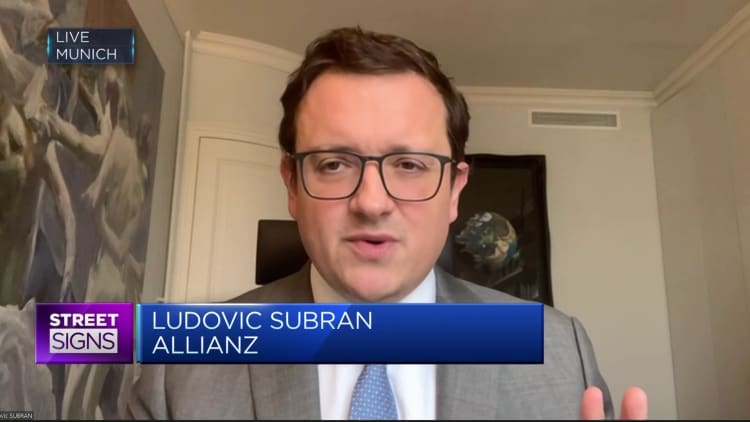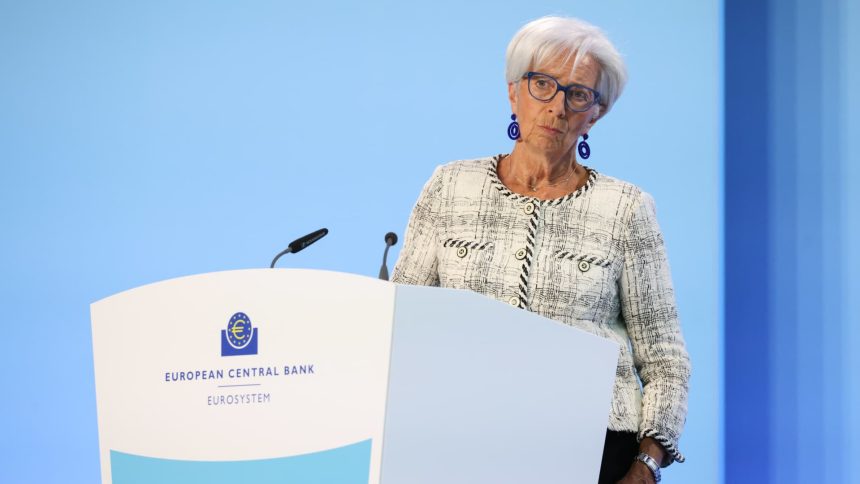FRANKFURT — The European Central Bank meets this week with investors closely monitoring to see when the Frankfurt institution might start to cut interest rates.
It will be too early to declare victory in the battle against inflation, but with inflation at a two-year low, it certainly gives the ECB’s Governing Council breathing space to focus on another important issue: its gigantic balance sheet.
“Having reached its policy rate plateau at a 4% deposit rate, the ECB can now shrink its balance sheet at a faster pace without risking too much of a blowout in yield spreads within the euro zone,” said Holger Schmieding of Berenberg in a research note to clients.
“Nonetheless, markets will probably have to correct some of their overoptimistic rate cut expectations once the ECB has spoken this Thursday.”
Inflation plunge
Inflation declined to 2.4% in November and core inflation also has gone down. With inflation falling faster than expected, investors have increased their bets for ECB rate cuts next year, especially after one of the more hawkish members of the board, Isabel Schnabel, called the consume price slowdown “remarkable” and “a pleasant surprise,” according to a transcript of a Dec. 1 interview with Reuters.
Money markets are currently pricing in almost 150 basis points of rate cuts next year. The bank’s key deposit rate is at a record high of 4%, after 10 consecutive hikes that began in July 2022 and pushed rates back into positive territory for the first time since 2011.
“The risk is now earlier and larger cuts, and an ECB more capable of decoupling from the Fed,” said Mark Wall, an ECB watcher with Deutsche Bank.
But he believes the ECB will most likely keep its cards close to its chest: “We expect the ECB to keep the guidance that maintaining restrictive rates for sufficiently long will bring inflation back to target in a timely manner.”
PEPP roll-off
Looking ahead, there will be a new round of staff projections for inflation and economic growth in March, which will give the central bank more data to back their data-dependent policy approach and possibly give it room for rate cuts.
But this week, the main policy change at the conclusion of the ECB’s meeting on Thursday might come in the form of a shift in forward guidance — specifically when it will end reinvestments of its PEPP program.
The PEPP, or the Pandemic Emergency Purchase Program, is a flexible bond purchase program introduced during the coronavirus pandemic. The ECB reinvests any maturing securities it gets from its PEPP portfolio but that could soon change.

“We have indicated that we would continue reinvesting until at least 2024,” ECB President Christine Lagarde told European Parliament lawmakers on Nov. 27.
“This is a matter which will come probably for discussion and consideration within the Governing Council in the not-too-distant future, and we will reexamine possibly this proposal.”
Deutsche Bank’s Wall explained that “if rate cuts are moving forward, the ECB might accelerate the preliminary steps in the exit from PEPP reinvestments.”
Read the full article here




